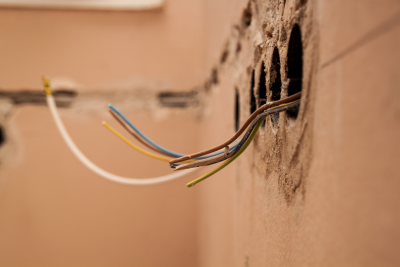3 min read
Colorado Court Upholds Damage Cap in Sears Personal Injury Suit
Joe Whitcomb
:
January 30, 2024

In the case of Gebert v. Sears, Roebuck & Co., Jacqueline Gebert filed a personal injury suit against Sears after being electrocuted by her stove, which a Sears repairperson had incorrectly wired. Gebert won at trial and a jury awarded her $2.7 million in damages, but this was later reduced in post-trial motions filed by Sears.
In this appeal case heard before the Colorado Court of Appeals, Division II, Sears appealed the admission of evidence that it initially denied negligence and later admitted it, and Gebert counter-appealed the court's reduction of her noneconomic damages to the statutory cap.
Procedural History
In January of 2019, Jacqueline Gebert hired Sears, Roebuck & Co. to repair her malfunctioning electric stove burner. Due to an incorrect wiring job conducted by a Sears technician, the cooking surface became energized at the voltage level of a home outlet and electrocuted Gebert while she was using it. Aside from the electrocution itself, she also suffered various physical and psychological impairments that persisted for some time after the incident. Gebert proceeded to file a lawsuit against Sears, citing negligence and vicarious liability for the technician's actions.
In response to Gebert's request for admissions (RFA), Sears initially denied that its employee had incorrectly wired the stove. During the deposition, the repairperson also denied accessing the stove's electrical box or making any rewiring adjustments. However, six weeks prior to the trial, Sears amended its RFA response and admitted that their repairperson's incorrect wiring had indeed energized the stove, but maintained its denial that the incorrect wiring caused any harm to Gebert. Citing Sears' delayed admission of negligence, Gebert filed a motion for sanctions under C.R.C.P. 37(c)(2), but the court did not rule on the motion until after the trial had concluded.
The remaining matters to be addressed in the trial were causation and damages, as agreed upon by all parties involved. Gebert's claim sought damages to cover both non-economic losses and physical impairment.
After a five-day trial that included testimony and medical opinions from Gerbert's medical team, the jury found that Gebert was injured due to Sears' negligence and awarded her a verdict of $2,000,000 for non-economic damages and $700,000 for physical impairment.
Post-Trial Motions
Following the trial, Sears moved to reduce Gebert's noneconomic damages to the then-applicable statutory limit of $468,010. Their motion was granted by the district court, resulting in a reduction of Gebert's noneconomic damages. However, the court denied Sears's request for a new trial or remittitur, as well as Gebert's motion for sanctions based on the delayed admission of negligence by Sears.
Arguments Presented on Appeal
Admission of Evidence
On appeal, Sears argued that the district court erred in allowing evidence pertaining to their initial denial and later admission of negligence in response to the first request for admissions. Although it was deemed erroneous to admit such evidence, the court considered it to be a harmless error that did not significantly impact the outcome of the case. Factors contributing to this determination included Mrs. Gebert's substantial evidence of impairments, Sears' opportunity to provide an explanation for changing its position, Sears' failure to object to the evidence's use, and the jury award falling below Mrs. Gebert's initial request.
Seventh Amendment Rights
Gebert argued that CRS § 13-21-102.5(3)(a), the Colorado statute governing the cap on noneconomic damages, was unconstitutional, violating her Seventh Amendment right to a jury trial. However, the court clarified that while the Seventh Amendment establishes the right to a civil jury trial at the federal level, Supreme Court precedent has established that this does not extend to state proceedings. Recent rulings have not overturned this precedent, and federal courts have consistently upheld the constitutionality of damages caps.
Furthermore, in contrast to the U.S. Constitution, the Colorado Constitution does not explicitly protect the right to a civil jury trial. According to Colorado appellate precedent, statutory caps on non-economic damages are considered constitutional and do not violate principles of equal protection, due process, or access to the courts.
Statutory Damages Cap
Gebert further contended that the district court should have exceeded the presumptive statutory cap which, adjusted for inflation, amounted to $468,010. Although the law allows exceeding the cap in certain circumstances, it is not obligatory, and doing so is considered an exception to the established limit. The court will only reverse a finding that no justification existed to exceed the cap if it was manifestly unreasonable.
Here, the court reasoned that Gebert's injuries were not as severe as those in cases where the damages award surpassed the cap, citing evidence presented on record that showed she was still able to work and live a productive life after the incident. The court was unable to identify a justification based on clear and convincing evidence to exceed the cap, and Gebert did not advance such a justification on appeal. As such, the district court's decision was upheld.
Ruling
Perceiving no abuse of the district court's discretion in declining to exceed the cap, the Colorado Court of Appeals affirmed the district court's decision to cap Gebert's noneconomic damages at the statutory limit.


